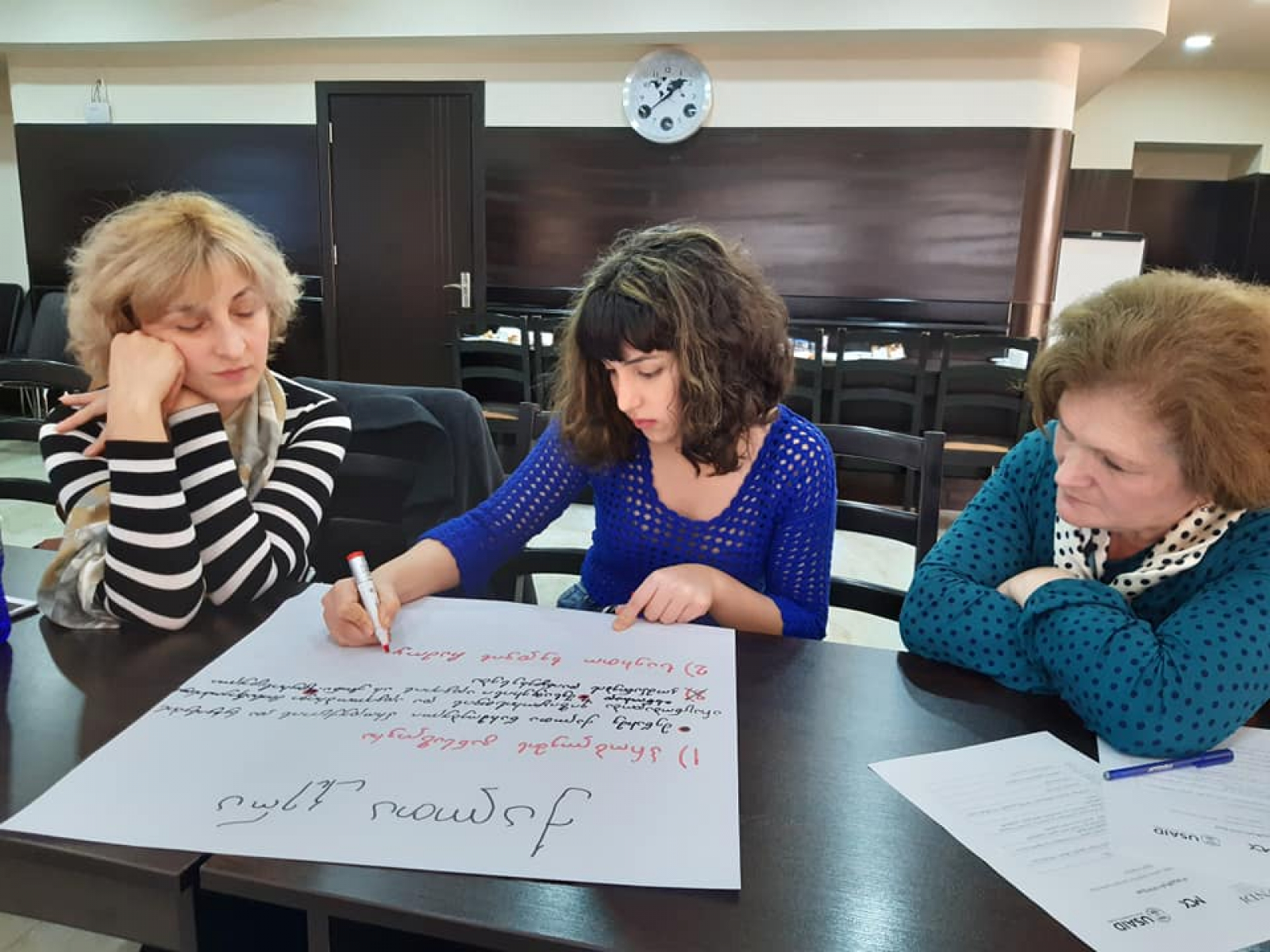
In Georgia, NDI partners with USAID to support civil society organizations’ (CSOs) citizen-driven advocacy campaigns. Partners identify pressing concerns in their communities, build public support around these issues and advocate to local, regional, and national authorities for their resolution. Between October 2019 and May 2020, NDI supported campaigns in the municipalities of Ozurgeti, Marneuli, and Telavi. Our partners’ stories prove that by putting citizens at the center of advocacy and increasing collaboration among local and national civil society organizations , local activists can get results for their communities.
This river is ours and we will not let anyone destroy it.
Activist in Ozurgeti
In Ozurgeti, activists from three CSOs - ECO, Guria Youth Resource Center (GYRC) and the Democratic Development Union of Georgia - led a campaign to seek government action on the harmful open pit mining activities damaging local rivers, and water sources, and roads. Extraction activity damages the environment, creating a financial and economic burden on local communities when water becomes polluted and farmland erodes. With NDI support, these organizations directly engaged the public and local government to find a solution. Their advocacy resulted in new funding for weigh stations to monitor the volume of mined materials, which will be overseen by the national patrol police. During implementation, NDI’s partners gained national and local media attention and began working with the Green Advocacy Platform, a national civil society coalition focused on environmental issues. This graphic provides additional details about the project.
Activists should closely study a community’s existing challenges and work to resolve them together with community members.
Youth activist from Marneuli
NDI’s partners in Marneuli - the Civic Engagement and Activism Center (CEAC) and Radio Marneuli - identified two community concerns affecting youth residents: a lack of public gathering spaces and limited access to public transportation. As these issues fall under the local government’s mandate, the partners created space for interested Marneuli youth, many of whom are ethnic Azerbaijani, to contribute to the local budget process. Youth joined public meetings, held in Georgian and Azeri, to discuss their concerns with and present their solutions to local leaders. As a result of advocacy, the government committed to fund new community centers and expand public transit options. The youth activists will continue to monitor local government spending in an effort to build accountability.
It is important for me to strengthen my business and contribute to my country’s economic growth… That’s why we cooperate with the Mayor’s Office and jointly try to resolve problems faced by entrepreneurs.
Member of the Women Entrepreneurs' Initiative Group in Telavi
Creating strong connections among community members helps ensure that results achieved through advocacy are long lasting and resilient. In Telavi, NDI’s partner organization Media Center Kakheti (MCK) established an interest group of local women entrepreneurs that advocated for greater support for their businesses. After sustained engagement with a local consultative council and demonstrated public support of their initiatives, the group secured government buy-in for a permanent marketplace in Telavi. This new space would offer growth opportunities for their businesses and for local tourism. As a result of the COVID-19 pandemic, MCK and the women’s initiative group organized a series of online discussions to identify challenges facing local business owners, share information on national and local initiatives that can offer support, and amplify their efforts to reach decision-makers. For example, the group created an online directory to promote local products and continue their advocacy efforts online. More information can be found here.
By empowering citizens to engage with their local leaders, civil society can unify communities and help create tangible results. Their successful advocacy builds trust that local institutions can be responsive, and each result encourages greater civic engagement.


